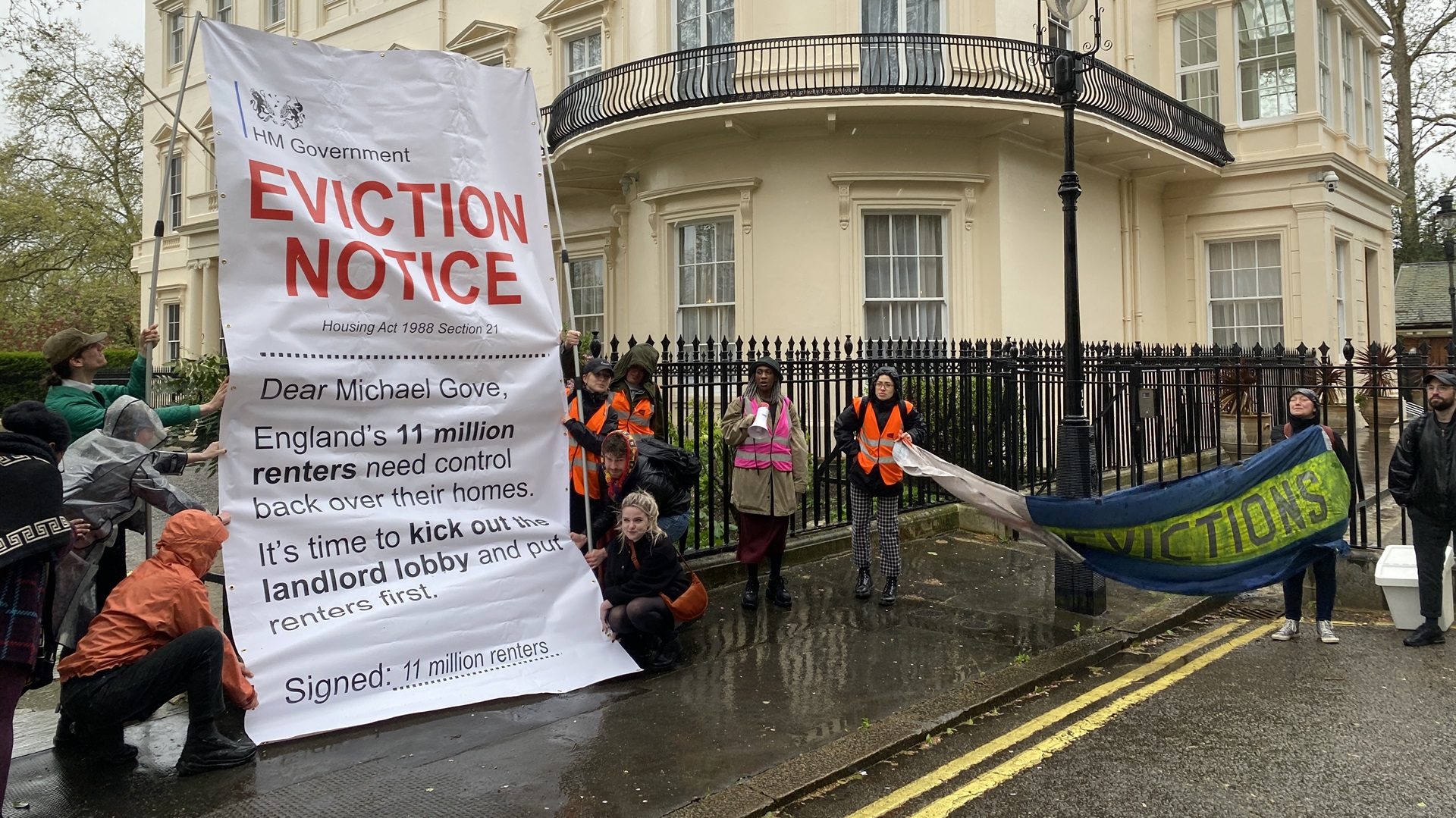Amendments to the bill, originally leaked by a letter from levelling up minister Jacob Young last month, could see no-fault evictions only scrapped for new tenancies – with existing tenancies forced to wait for reforms to the court system.
Another amendment is also set to keep tenants in place for at least the first six months of their tenancy, sparking warnings from domestic abuse campaigners that it will trap renters in abusive situations.
The RRC statement added: “The result of all the government’s backtracking is that we now have a bill that abolishes Section 21 in name only – there is no guarantee it would ever fully abolish Section 21, and even then the new tenancy system set to replace it will be little better. This legislation is intended to give the impression of improving conditions for renters, but in fact it preserves the central power imbalance at the root of why renting in England is in crisis.”
The Renters Reform Bill must still clear the House of Lords ahead of the general election to make it into law.
Young said ministers will work to pass the bill as soon as possible. He said: “The Renters Reform Bill will deliver our manifesto commitment to abolish Section 21 no-fault evictions and ensure a fairer private rented sector for both tenants and landlords.”
Labour’s shadow housing secretary Matthew Pennycook said Young “could not commit to a solid date” for the no-fault eviction ban in parliament last week – but vowed Labour would immediately abolish them if voted into power.
Advertising helps fund Big Issue’s mission to end poverty
Pennycook said: “Instead of ministers having the courage to face down their unruly backbenchers, this weak and divided Conservative government is appeasing them at the expense of private renters who will see the rights and protections they were promised watered down.
“The long overdue end of no-fault evictions cannot be made dependent on unspecified future court improvements subjectively determined by ministers.
“The government needs to definitively abolish Section 21 evictions at the point the Renters Reform Bill becomes law or a Labour government will finish the job.”
Wednesday’s third reading comes almost a year after the bill made its debut in parliament – and five months after MPs first had a chance to debate the legislation at the second reading.
Anger has grown in the time since and last week activists from London Renters Union (LRU) served housing secretary Michael Gove with a four-metre-high eviction notice at his London property.
The renters union has called for the government to scrap its amendments and accused ministers of “protecting the profits of the landlord lobby”.
Advertising helps fund Big Issue’s mission to end poverty
Siobhan Donnachie, campaigns officer at the LRU, said: “In its current state, the Tories’ bill will fail to give renters any real security in our homes.
New analysis from campaign group 38 Degrees shows a total of 72 Conservative MPs – 20% of the party – declared rental income over £10,000 from English residential properties in the 12 months to 15 April.
Overall, 93 MPs earned money as landlords including 18 from Labour and two from the Liberal Democrats.
“After five long years, there is still no end in sight to the slew of evictions forcing tens of thousands of us into homelessness.
“Michael Gove has shown more interest in protecting the profits of his mates in the landlord lobby than ensuring everyone in this country has a secure place to call home.
“Renters have had enough of the Tories and their broken promises. Labour must step up and commit to protect renters from unfair eviction and unaffordable rent hikes.”
Advertising helps fund Big Issue’s mission to end poverty
John Bird, founder of the Big Issue and crossbench peer, vowed to further scrutinise the bill ahead of its reading in the House of Lords.
“The government benches have continuously weakened the Renters Reform Bill throughout its passage int he Commons. I agree with the Renters’ Reform Coalition’s statement today that, if passed in its current form, it will be a complete failure for renters across the country, who deserve secure, safe and affordable housing.
“Unfortunately, this government is breaking its manifesto promise of a better deal for renters.
“I look forward to the Renters Reform Bill coming to the Lords, where I intend to do what I can to make the legislation deliver for the millions of renters that desperately need stronger protection from those landlords who are unethical.”
Generation Rent chief executive Ben Twomey said tenants should have four-month notice periods instead of two and should be protected from eviction for two years instead of just six months. Otherwise “we could still be just a couple of months away from homelessness”, he added.
Darren Baxter, principal policy adviser at the Joseph Rowntree Foundation, said “ministers still had time to do the right thing” to reverse the delay in ending no-fault evictions. He also called for the bill to limit in-tenancy rent increases to the lowest of inflation or wage growth.
Advertising helps fund Big Issue’s mission to end poverty
Meanwhile, Ben Beadle, chief executive of the National Residential Landlords Association, said he believed the bill delivered a “fair deal for tenants and responsible landlords” and urged ministers to speed up in bringing it through parliament.
Oli Sherlock, managing director of insurance at lettings platform Goodlord, described the amendments as “sensible and logical”.
“At risk of sounding like a broken record, the industry just needs clarity on details and timelines,” he said. “Landlords, tenants and agents need to know exactly what is changing and when. This legislation was promised as part of the Conservative manifesto and the clock is ticking ahead of a general election, all whilst patience in the market is wearing very thin.”
Do you have a story to tell or opinions to share about this? We want to hear from you. Get in touch and tell us more.









